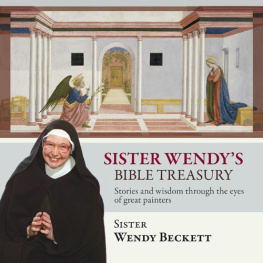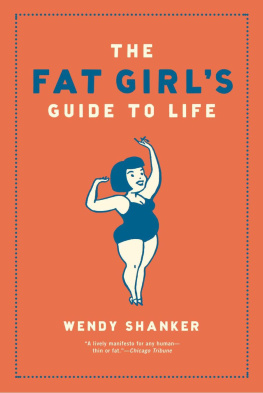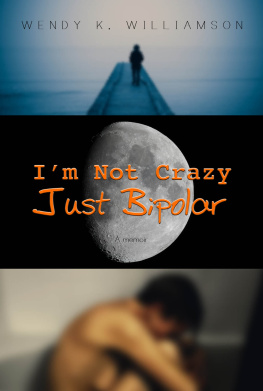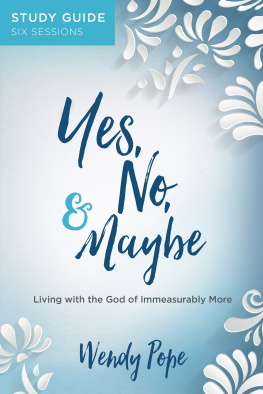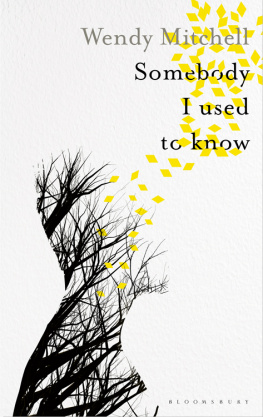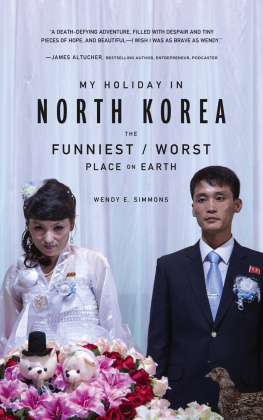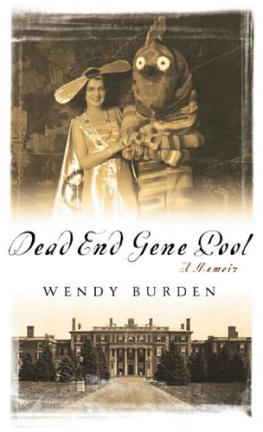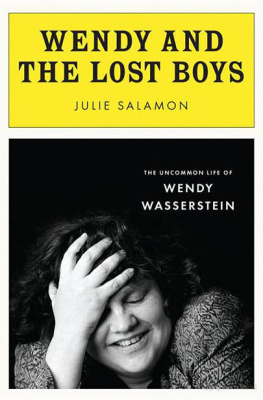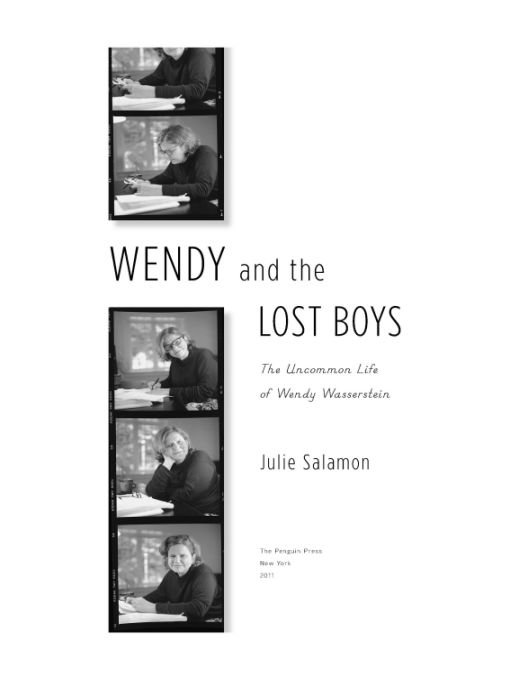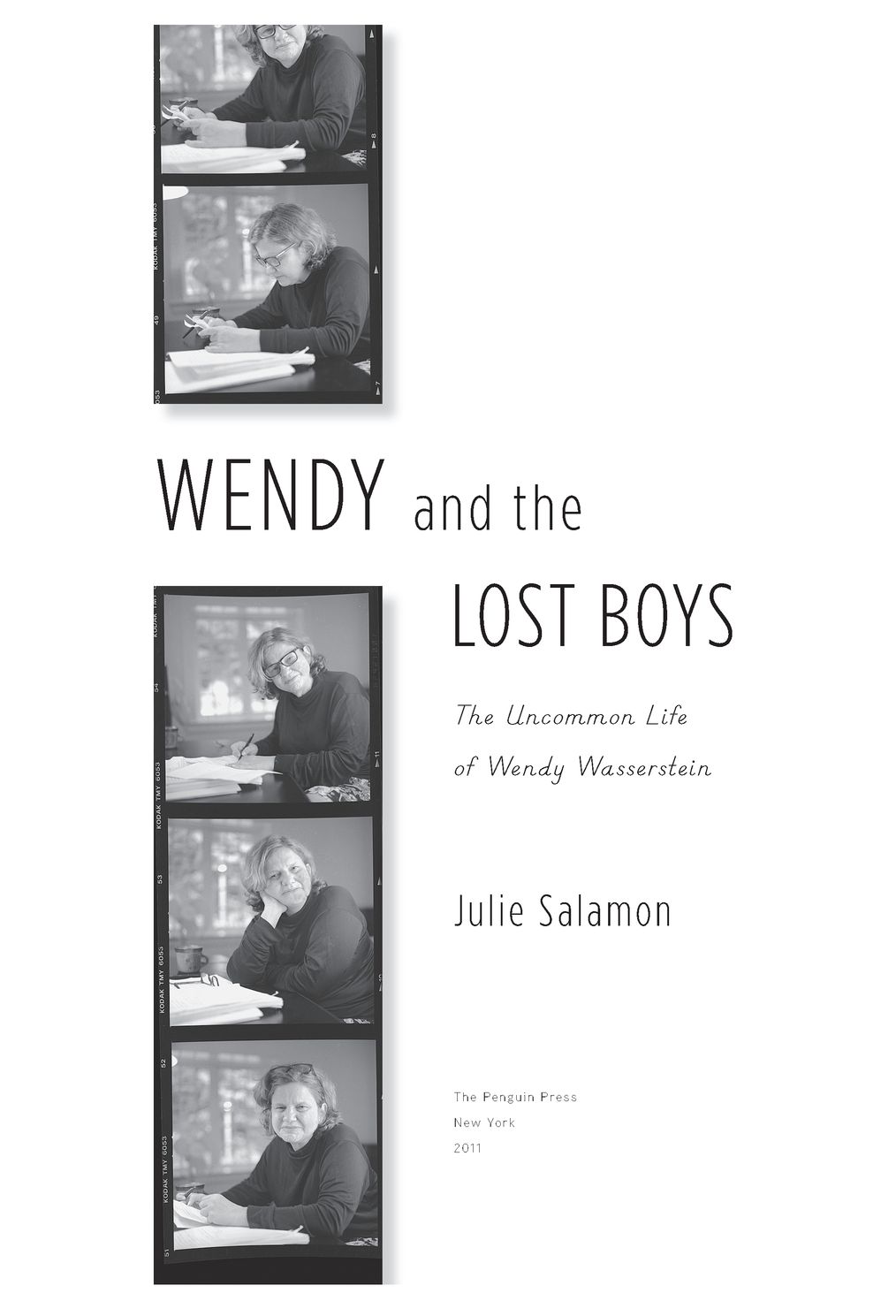Table of Contents
ALSO BY JULIE SALAMON
Hospital
Rambams Ladder
The Christmas Tree
Facing the Wind
The Net of Dreams
The Devils Candy
White Lies
FOR PATTI LYNN GREGORY
All children, except one, grow up. They soon know that they will grow up, and the way Wendy knew was this. One day when she was two years old she was playing in a garden, and she plucked another flower and ran with it to her mother. I suppose she must have looked rather delightful, for Mrs. Darling put her hand to her heart and cried, Oh, why cant you remain like this for ever! This was all that passed between them on the subject, but henceforth Wendy knew that she must grow up. You always know after you are two. Two is the beginning of the end.
from PETER PAN, by J. M. Barrie
PROLOGUE
When Wendy Wasserstein died on January 30, 2006, at age fifty-five, hers was a rare obituary considered important enough to make the front page of the New York Times. Her memorial service, held in the 1,060-seat Vivian Beaumont Theatre at Lincoln Center, packed the house. The overflow was siphoned into a theater across the street at the Juilliard School, where an additional five hundred fans joined the other mourners via video monitors.
Strangers wept and columnists eulogized. She was remembered as a significant playwright, but also as a quintessential New Yorker, the toast of the tough and glamorous metropolis. She had an uncanny ability to know almost every major player in theater, publishing, and politics, right up to the White House. Because she wrote about women and the subjects that concerned them, she was designated a feminist. But with Wasserstein everything, including politics, tended to be personal.
Friends often mentioned her two voices: the high, girlish, giggly one she generally used and the deep, authoritative tone that said she meant business. Likewise her work ranged from the frivolous to the profound; her trademark was humor laced with poignancy.
Wasserstein was noticed as a playwright whose work became worthy of the Pulitzer Prize, and she was the first woman to win an unshared Tony. But she became a celebrity by turning her life over to the public domain. In plays, autobiographical essays, and interviews, she opened her heart and her family album for the world to see. No personal detail seemed exempt from public consumption, including her decision to have a child at age forty-eight, as a single mother. In the New Yorker, in remarkable detail, she made the world privy to the difficult, miraculous birth of her daughter Lucy Jane, who weighed in at 790 grams, less than two pounds. The baby shower was recorded by a photographer and a reporter from the New York Times.
People she didnt know would stop her on the street and greet her, not with starstruck awe but with familiarity. Women identified with her dilemmas, petty and grand: What shoes to buy? Was it possible to lose weight without exercising or eating less? What was the most romantic spot in New York? Why couldnt she find a man who would want her? Was the problem her success? Could she create a family when she couldnt always cope with the one shed been born into? What did it mean to be a good person? Where was fulfillment?
They believed they knew her well enough to ask about her daughter, her diets, her siblings, her boyfriends, her motherand to tell her about theirs.
Yet after she was gone, what stunned those closest to her was how much they didnt know. What was the nature of her relationships with the numerous men, gay and straight, she called her husbands or crushes? Why had almost no one known she was pregnant, and who was Lucy Janes father? If so many people were her best friends, why did none of them realize how gravely ill she was until the very end? Why did some of her obituaries say there were four Wasserstein siblings, while others said there were five?
Through drama she told many truths. In personal essays, drawn from her life, she freely reconfigured events, as though she were writing fiction. She was as covert as a spy, parceling out information to a host of confidants, allowing each of them to believe that he or she alone had access to the inner sanctum. Only later did they realize that Wasserstein had constructed her life as a giant game of Clue, full of hidden connections and compartmentalized players. She used humor as a dodge, intimacy as a smoke screen.
Such reinvention was the stuff of theater. But Wasserstein learned the tactic long before she began writing plays. Her parents, Lola and Morris Wasserstein, were immigrants whod had the brains and ambition to become what they believed they should be (successful Americans), not what they had been (Jewish outcasts). They took their children to see the Broadway musicals that celebrated these notions far more often than they took them to synagogue. They displayed no nostalgia for the past, only intense hunger for the future.
Wendy Joy Wasserstein was born on October 18, 1950, in the thick of the Baby Boom, the postwar procreative binge that seemed like a collective impulse to replace what had been lost. Only five years had passed since the end of the twentieth centurys second world war; 50 million lives had been extinguished. The Wassersteins were caught up in generational momentum, the postwar conviction that humankinds best chance was to look ahead, to shut the door on the past, to produce a new worldor at the very least to reproduce. They would defy death with life.
Wasserstein became the quintessential Baby Boomer, part of the generation captivated and characterized by Peter Pan, the brave, charming, petulant, and wistful boy (often played onstage by a woman) who would never grow up. She was one among the many babies named for Peters beloved friend Wendy Darling, the girl who couldnt avoid her fate, that of becoming an adult. Peters Wendy understood that her duties were to stay at home and tend to marriage and motherhood, while boys went out into the world to fight pirates and men became bankers. But Wendy Wasserstein came of age when women were supposed to do it all.
Her story tracks a period of momentous change in womens lives and personal relationships. The nuclear family, defined by the Census Bureau as a heterosexual married couple with children under eighteen, made up 45 percent of all U.S. households in 1960, when Wasserstein was ten years old. By 2000, when she was the fifty-year-old single mother of a toddler, that traditional configuration had fallen to 23.5 percent of all households. Marriage was no longer a prerequisite for having children, and those children might even have parents who were gay.
Call it fate, demographic probability, or simply the kind of thing that would make Wasserstein laugh that famous high-pitched giggle, even as she spun the facts into another bittersweet, funny-serious story of a modern womans search for her place in the world. She was part of an American generation convinced of its supremacy and an immigrant family whose children were expected to do itwhatever it wasbetter than anyone else. Her destiny was set the instant she emerged from Lolas womb.
A friend often told her, You were born into great material.
Or, as Wasserstein herself would say, Funny is a very complicated issue.
Part One



